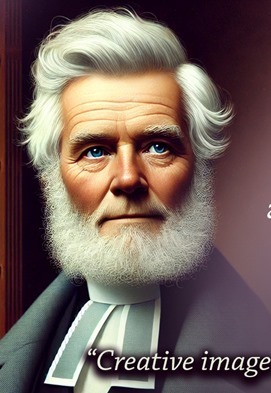
Today’s Leader of Faith
WILLIAM ADAM
Home Call : 19 Feb 1881
Missionary, Linguist, Education Reformer, Translator, Abolitionist
William Adam (1796–1881) was a Scottish missionary and education reformer who played a significant role in India during the early 19th century. He is best known for his linguistic work, his collaboration on Bengali Bible translation, and his pioneering reports on indigenous education in Bengal, which influenced colonial education policies. In 1830, he was appointed by the colonial government to study native education in Bengal. His reports influenced later education policies in colonial India, emphasizing the importance of vernacular education. He later became a critic of the Westernization of Indian education, advocating for education in Indian languages instead of English.
Adam was born in Dunfermline, Scotland. Inspired by the churchman Thomas Chalmers, he decided to go to India. To prepare for this mission, he pursued education at the Baptist College in Bristol and the University of Glasgow. In 1818, Adam arrived in India as a missionary, working in north of Calcutta. He dedicated himself to mastering Sanskrit and Bengali, eventually engaging in the translation of the New Testament into Bengali. He collaborated with Ram Mohan Roy, supporting Roy’s insights into the translation.
Adam’s commitment to India made him join with Roy and a group of locals and Europeans to form the Calcutta Unitarian Society. The society dissolved when its Hindu members became drawn to the emerging ideas of the Brahmo Samaj. In 1830, Adam was appointed by the colonial government of Bengal to conduct a census and analysis of native education in Bengal. He continued working on education reform and supported Indian-led initiatives for learning. In 1838, with American support, Adam sent his family away and later travelled to London as the U.S. representative at the British India Society’s anti-slavery meeting.
Adam died in Beaconsfield in 1881. At his own request, he was buried in an unmarked grave, reflecting his humility. In his will, he left his wealth to fund scholarships for students at the local grammar school. These scholarships were to be awarded without any prejudice, ensuring equal opportunities for all deserving students, regardless of their background or status. His legacy remains a testament to his commitment to education and social equity.
